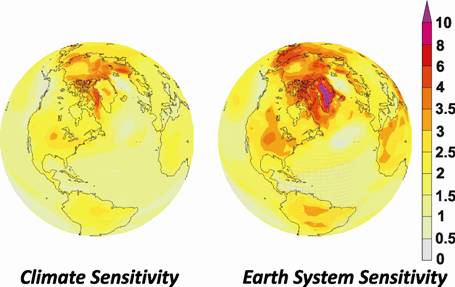Recent
Events

"The present is the key to the past"
Uniformitarianism; James Hutton
..can the past also be the key to the future?
Pliocene Earth System Sensitivity
Professor Alan Haywood, principle investigator of the Sellwood Group for Palaeo-Climatology has securred a 1.42m Euros grant to develop work on Pliocene Earth System's Sensitivity (Plio-ESS)
The mid-Pliocene Warm Period occurred 3 million years ago. Global mean temperatures were 2 to 3 degrees Celsius higher than today, which is in line with projections made for the 21st century by the Intergovernmental Panel on Climate Change.
Plio-ESS researchers will use a combination of modelling and geological data collected from fossils to reconstruct mid-Pliocene vegetation and ice-sheets in sophisticated computer models.
This will enable us to produce a rigorous estimate of Earth System Sensitivity - a new concept in climate science, defined as the long-term equilibrium surface temperature change given an increase in CO2, including all Earth system feedbacks, but neglecting processes associated with the carbon cycle itself, such as marine productivity or weathering.
Data from this project can be used by climate scientists and policy makers to define targets for reductions in greenhouse gas emissions that will avoid dangerous levels of climate change.
Plio-ESS is funded by a 1.42m Euros grant from the European Research Council and will run for 5 years.












